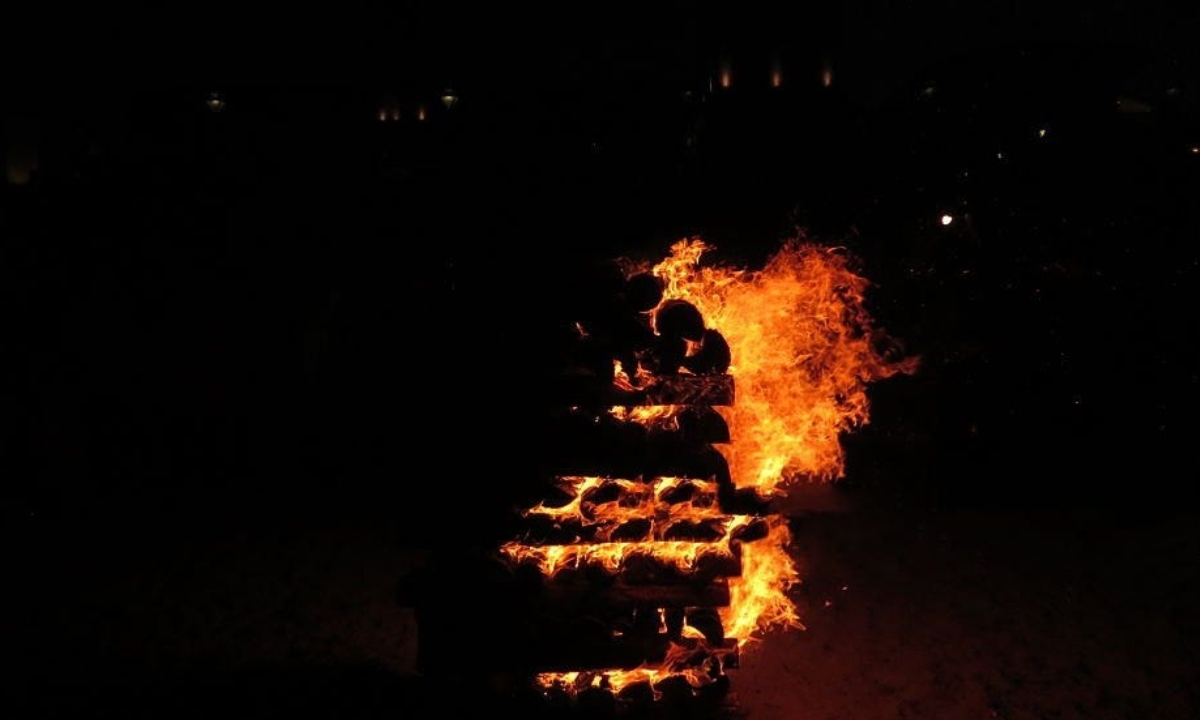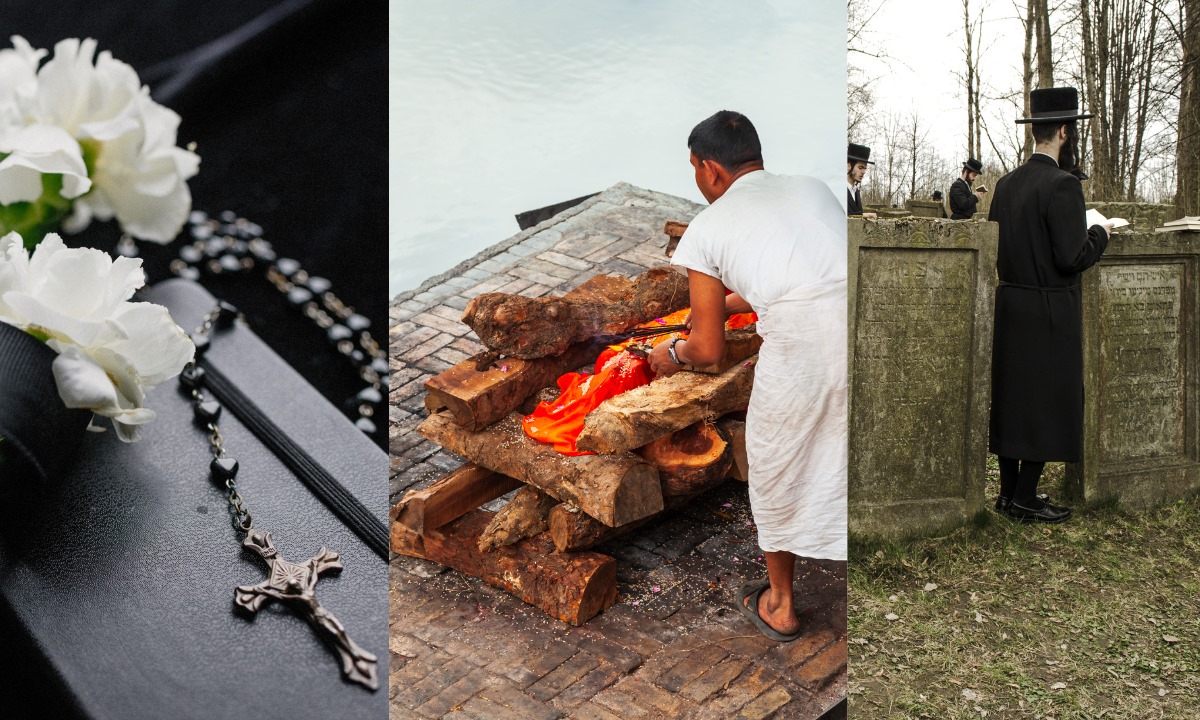In this essay, we will look at the many rituals and beliefs surrounding cremation services in different religious traditions. Death is a universal event, and how it is remembered differs widely amongst religions. Understanding these distinct viewpoints and customs is critical for making thoughtful and respectful funeral preparations.
We investigate the spiritual meaning of cremation in Eastern religions, ranging from Hindu belief in moksha to Buddhist practice of cremation as a method of salvation. We also look at the Christian perspective, where cremation has gained acceptance in recent years, as well as the myriad questions and problems it brings within the faith.
Furthermore, we look into Judaism’s perspective, which often rejects cremation because of the belief in physical resurrection, while emphasizing exceptions and other options within the Jewish community.
Learning about the complexities of cremation services in many religious traditions helps us better grasp the variety of beliefs and rituals surrounding death, as well as appreciate each individual’s cultural and spiritual needs. We also discuss specialized services that cater to specific customs, such as Cremation Services in Bangalore. Join us for an exciting trip via many religious perspectives on cremation.
Cremation Practices in Hinduism.

Cremation is particularly significant in Hinduism because it is believed to pave the way for the soul’s journey to moksha, or liberation from the cycle of birth and death. Hindu funeral traditions often include the cremation of the corpse on an open fire. Before being transported to a cremation site, such as Yelahanka or Jakkur Wood Crematorium, the body is bathed, decorated with flowers, and wrapped in white fabric.
Traditionally, the eldest son or closest male relative is responsible for lighting the funeral pyre. This procedure is viewed as a transformational rite in which the body is reduced to its most basic constituents and the spirit is liberated from its worldly constraints. Following cremation, the ashes are usually strewn in a sacred river or body of water, such as the Ganges, to complete the life-death cycle.
Cremation firms in Bangalore, for example, facilitate these important rites by ensuring that they are carried out with the utmost respect and tradition.
Cremation Practices in Christianity.
Cremation has sparked debate in Christianity, with varied views among denominations. Cremation has long been frowned upon by the Catholic Church, as it contradicts the belief in corporeal resurrection. However, in 1963, the Vatican published guidelines that permitted cremation as long as it did not contradict belief in resurrection.
Cremation has gained favor among Christians in recent years, reflecting changing cultural norms. Many people consider it as a more practical and cost-effective alternative to traditional burial, however there are worries about bodily resurrection and the purity of the body as a temple of the Holy Spirit.
To address these issues, numerous Christian groups propose treating cremated remains with the same respect as bodies. This includes ensuring the correct internment or burial. In urban environments such as Bangalore, facilities such as hearse van services and the Wilson Garden Electric Crematorium help to ensure that these rites are carried out with respect and tradition.
Cremation Practices in Islam
Cremation is strictly forbidden under Islamic doctrines and customs. Muslims place tremendous value on the body and emphasize the need for proper burial. According to Islamic tradition, the corpse is ritually cleaned, wrapped in plain cloth, and buried shortly after death to honor the deceased and the body’s duty as a conduit for the soul.
The funeral ritual is a solemn obligation that expresses regard and honors the deceased’s memory. Muslims are often interred at Mecca, Islam’s holiest city, as a mark of spiritual connectedness. Cremation is strictly forbidden in Islamic beliefs because it undermines the sanctity of the body and the Muslim community’s sacred customs. Local services that ensure the proper care and burial of the deceased make it easier to adhere to these customs in areas such as Bangalore.
Cremation Practices in Buddhism
Cremation is a traditional Buddhist practice that represents the soul’s freedom from the limits of the physical body. Buddhist teachings place a strong emphasis on reincarnation and the impermanence of existence. Cremation is thus embraced as a means of cutting ties with the physical form, allowing the spirit to travel to the next world.
Buddhist funeral ceremonies typically include sutra recitations, prayers, and offerings to assist the deceased in their transition to the afterlife. Following cremation, the ashes are commonly gathered and deposited in a stupa or urn. These containers may be respected in temples or family homes, serving as a touching monument to the deceased and a focal point for spiritual connection.
Comparing Cremation Practices among Religions
Exploring cremation processes in many religions reveals a rich tapestry of death-related beliefs and actions. While some religions consider cremation a sacred rite of passage, others see it as a deviation from religious heritage.
Cultural and geographical variables have a significant impact on these activities. Cremation is widely practiced in Hindu and Buddhist-majority nations like India and Nepal. In contrast, largely Christian nations have historically preferred burial.
Navigating funeral arrangements necessitates consideration of the deceased’s religious and cultural beliefs. Understanding the diverse viewpoints on cremation, particularly the significance of ceremonies like Kaashimukthi, enables us to provide appropriate support and guidance to bereaved individuals and families. Cremation Services in Bangalore, where diverse cultures come together, respond to their diverse needs with respect and empathy.
Conclusion
Exploring cremation rites in various religions reveals important insights into the complex beliefs and rituals surrounding death. Cremation has great spiritual and cultural importance in Eastern faiths, including Hinduism’s quest of moksha and Buddhism’s emphasis on soul liberation.
Although Christianity has become more accepting of cremation, worries regarding physical resurrection remain. Islam primarily opposes cremation and encourages respectful burial, but Judaism generally forbids it, with few exceptions.
Understanding and appreciating these many points of view is essential for carefully managing funeral arrangements. During times of loss, each individual’s religious and cultural values should be respected and taken into account. In urban hubs like Bangalore, where numerous traditions intersect, Cremation Services in Bangalore ensure that these needs are met with care and compassion.
Kaashimukthi is a funeral services provider in Bangalore that assists grieving families by arranging the entire funeral process from rites to cremation burial with compassion and care. Contact us +91 9845819660

